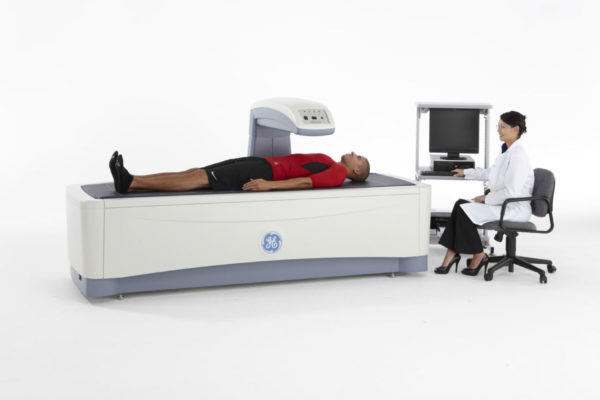How to Maintain Bone Health
- Category: General
- Posted On:

Bone health is the cornerstone of good health. Bones provide your body’s structure, protect your organs, and anchor your muscles. While childhood and adolescence are critical times for building strong, healthy bones, your bones continue to grow and change throughout your life. When you are young, your body makes new bone faster than it breaks down older bone and your bone mass increases. As you age, notably after the age of 30, you start losing more bone mass than you gain. Your likelihood of developing osteoporosis — a condition that causes bones to become weak and brittle — depends on how much bone mass you gain at its peak, and how rapidly you lose mass after that. When you maintain bone health you lower your risk of injury and disease advancement.
Maintain Bone Health: Factors Contributing to Bone Mass Loss
Men and women older than 50 should talk to their doctor about their risk factors for osteoporosis to find out whether they need to be screened.
A few risk factors that indicate you should be screened for osteoporosis include:
- Any adult who has had a fracture after age 50
- Postmenopausal women or women with a family history of osteoporosis and low body weight
- Adults who are taking or have taken medications that can increase osteoporosis risk, such as steroids, contraceptives given by injection, or some cancer treatments
- Adults who are calcium or vitamin D-deficient
- Women over the age of 65 and men over the age of 70
Maintain Bone Health: When to Get Your Bone Mass Checked
Certain physical changes can signal osteoporosis, including loss of height or a change in posture. Fragility-related fractures — such as fracturing a bone as a result of a mild to moderate trauma — can also occur before being diagnosed with bone loss or osteoporosis. If you experience this kind of fracture and are over the age of 50, the National Institutes of Health (NIH) recommends talking to your doctor about bone-loss screening or other tests for bone loss.
Other signs could also mean you’re at a higher risk for a bone fracture, including:
- High levels of serum calcium or alkaline phosphatase on a blood test
- Bone mineral density results showing a T-score of -2.5 or less
- Vitamin D deficiency
- Difficulty getting up from a seated position without using your arms to push yourself up
- Joint or muscle aches
Maintain Bone Health: DEXA Scanning

A DEXA scan is a non-invasive test that measures bone mineral density to assess if a person is at risk of weak or brittle bones. DEXA, or dual energy x-ray absorptiometry, is a procedure in which two X-ray beams are aimed at the bones. While a regular X-ray can show changes in bone density (osteopenia) after bone loss of about 40 percent; a DEXA scan can detect changes as small as 1 percent, making it more sensitive and accurate. After an initial DEXA scan, subsequent scans can be done to compare the progression of bone loss or to determine how well an osteoporosis treatment or medication is working.
A few reasons to have a DEXA scan include:
- Bone loss in your spine showed up in an X-ray
- Back pain that could be caused by a fracture
- You’ve lost a half-inch or more of height within one year or a total height loss of an inch and a half
We can provide DEXA scans in our office as well as set you up with treatments to determine your future bone loss risk.
Maintain Bone Health: What Happens If You’re Deficient

There are simple steps you can take to help keep your bones healthy and strong. Fractures and breaks due to osteoporosis are a serious health threat, often requiring longer hospital stays and recovery times among seniors, as well as having higher medical costs.
- Make healthy food choices, including a diet rich in nutrients such as calcium and vitamins C, D, and K and low in fat. Low-fat dairy products, as well as foods like fish, white beans, and tofu, are great sources of calcium. Fruits and vegetables, such as kale, greens, broccoli, bell peppers, berries, and citrus fruits, are rich in vitamins and minerals.
- Moderate alcohol and sugar consumption. Consuming more than two alcoholic drinks per day raises your risk of falls and fractures. Excess sugar, such as with heavy soda consumption, is linked to lower bone density.
- In addition to foods rich in Vitamin D, spending time in the sun — as little as five to 30 minutes two-to-three times a week — can help your skin produce Vitamin D on its own. Sunscreen may clog pores and cause vitamin-D to not be converted properly. However, it is important to wear sunscreen if you’re going to have prolonged sun exposure. It’s a balance. Ask your doctor if you need to include Vitamin D supplements to get the recommended daily intake of 2,000 IUs. Take vitamin supplements if your doctor recommends them.
- Stop smoking — smokers tend to have a lower bone mass and higher risk of fractures compared to nonsmokers.
- Exercise regularly and maintain a healthy body weight. Weight-bearing exercise strengthens bones and is an important part of osteoporosis prevention.
- Review your medications with your doctor, as some medications, such as corticosteroids and proton pump inhibitors, can negatively impact your bone density. If you need these classes of drugs, talk to your doctor about osteoporosis prevention medications. There are a number of medications approved for treating or preventing osteoporosis, including TYMLOS, Forteo, bisphonates alendronate (Fosamax), ibandronate (Boniva), risedronate sodium (Actonel) and zoledronic acid (Reclast); hormones including estrogen products; the bone-forming agent teriparatide (Forteo); the selective estrogen receptor modulator raloxifene hydrochloride (Evista); and the biologic agent denosumab (Prolia).
There are no signs and symptoms of osteoporosis. If you have any of the above risk factors, or have experienced a fracture, we recommend meeting with our in-house expert, Alicia, to have an evaluation. Call (855) FVORTHO | (855) 386-7846 to schedule your appointment with Alicia today!



